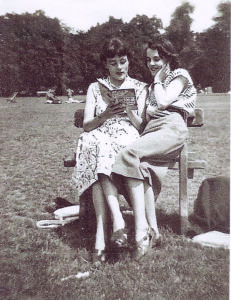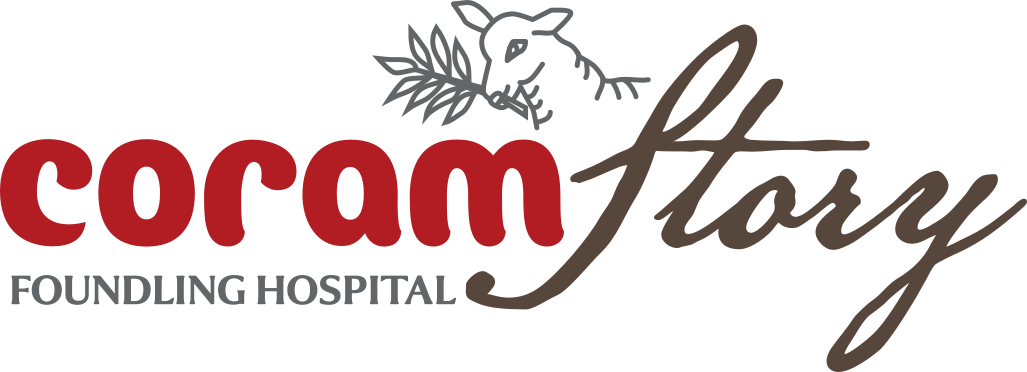Eleanor Allen was a pupil at the Foundling Hospital in the years surrounding the Second World War. She subsequently enjoyed a successful career as a music teacher and journalist and is now a great grandmother. She shares her memories below.
Eleanor’s mother
My mother was a waitress in an ABC Café. Amongst her regular customers was an older man. He was 33, she was 19 and they became more than just friendly. After about a year he said. ‘I’m going to go back to my wife and children’ – about which she knew nothing. She was devastated and also discovered that month that she was pregnant. At which point she was sworn to secrecy and sent off to live with an aunt. By the time I was born in the Mile End Hospital in East London my mother had applied to the Foundling Hospital to admit me. I was accepted into the hospital’s care and placed with a foster mother. At the age of 4 I was moved to live at the Foundling Hospital in Berkhamsted.
Memories of the Foundling Hospital
I remember my first day really clearly. Being put in a line of girls and having our hair cut to the same pudding basin shape. Then being thrown into the bath and all us of putting on the same prickly dresses. The school was very strict and regimented and we were called by our surname so I was Prynne. Or “A5” after the dormitory I was in.
When I was six or seven I developed a serious earache and I was put into the sickbay with a girl called Evelyn. She was there because she had very bad asthma. We were being guinea pigs for penicillin which was new at that time. So we spent a blissful six weeks in the summer of 1942 chatting, swimming, playing and eating. No rules, no haircuts, none of the normal routine. Evelyn was a lifelong friend. Sadly, she died this year but to her dying day that’s all we ever talked about. Other people, our contemporaries, were so envious.

Eleanor (left) with her best friend, Evelyn. Green Park, London circa 1950, courtesy Eleanor Allen
A musical future
During my time at the Hospital we had a very progressive music master who taught me to play the oboe and my talent for music led to a Scholarship at Malvern College. I remember Miss Brooks, the headmistress, insisting that we create a history for me that was “acceptable.” She came up with this story that my parents had been killed in a car crash and I had to learn this parrot fashion. I was completely out of my element at the school, which was full of debutantes going off to May Balls and the like. Fortunately, I had a lot of music teaching and that eventually lead to me going to the Royal Academy of Music. I didn’t think I’d get in but I did.
I loved the Royal Academy. I had a lovely professor of woodwind a lady known as Margaret Elliott who later became Margaret Asher. At one point, I lived with the Asher family. This was when the daughter Jane was going out with Paul McCartney and he used to babysit for me. My best friend at Malvern was a girl called Jane Allen and she had a brother called John who used to come and take us out in his car. When he came back from national service in 1956 he proposed to me and I said ‘yes’. The marriage lasted 58 years long and we had four children who grew up to be very successful people. I had a good career in teaching and music and at the age of 60 I took a degree in English. I then worked in journalism for six years and became a volunteer at the Foundling Museum.
Looking to the past
It was John who encouraged me in my sixties to find out more about my past. I worked with Val Molloy, a Senior Social Worker at Coram, who helped us look through my records. Eventually I met my three half siblings. One of my sisters is only a year and a half younger than me. My mother had got pregnant again and went on to marry the father of my half-sisters. My feeling has always been if you had a baby in your arms and you had to part with it, you’d want another one. So I understand that. I was really happy for her and they said she was a brilliant mum. Sadly I never met her as she died in 1994 and I only began looking for her in the early 2000s.
“Thankfully, a lot of the gaps in my past have been filled. Many of them thanks to my Foundling Hospital contemporaries who I still meet from time to time. They know bits that I don’t remember or things that I never knew. Which helps make sense of it all.”

